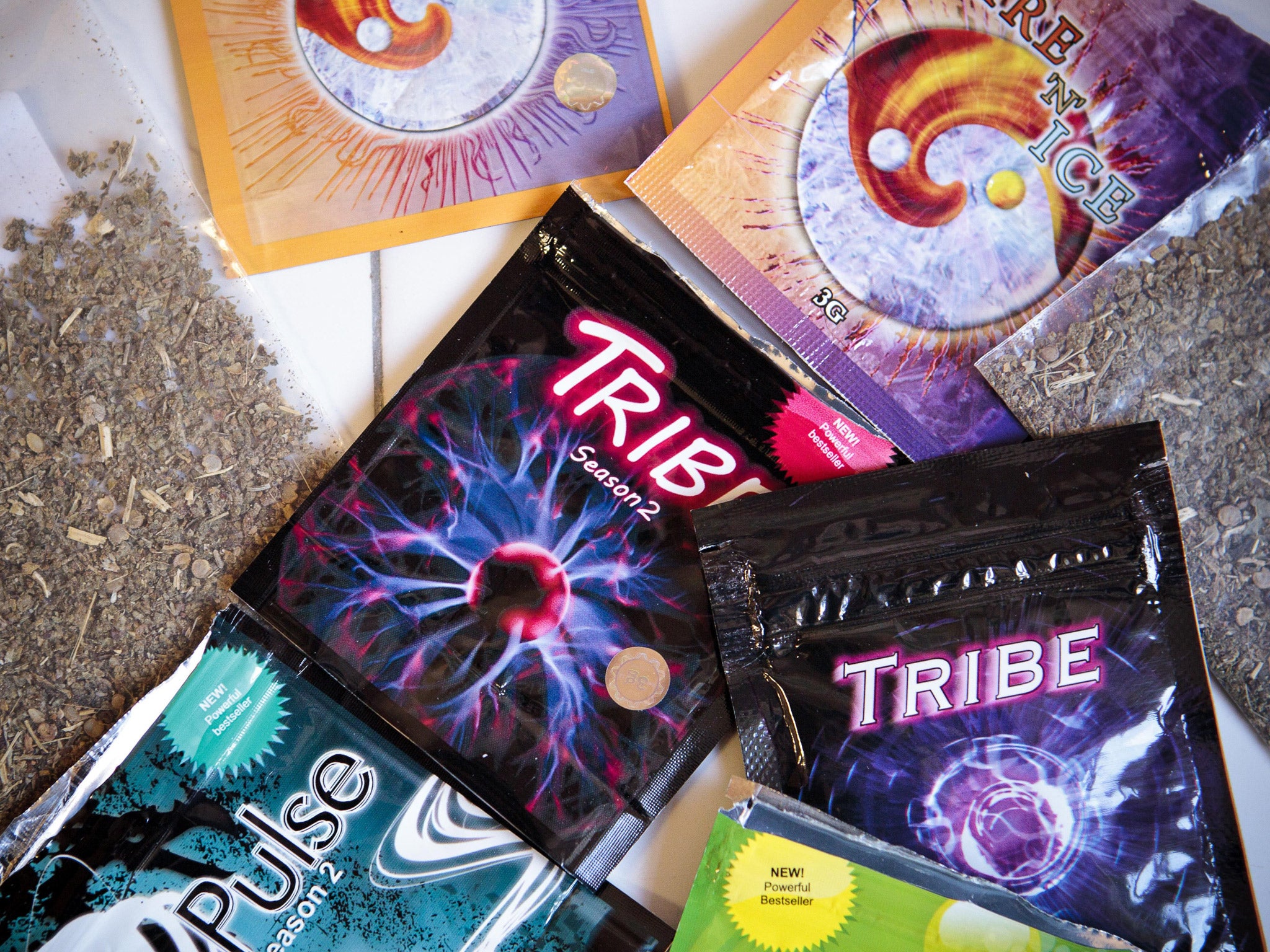EU could be given powers to ban 'legal highs' within weeks of them hitting the market
Chemical substances mimicking effects of illegal drugs such as ecstasy and cocaine currently take two years to remove from the shelves

Your support helps us to tell the story
From reproductive rights to climate change to Big Tech, The Independent is on the ground when the story is developing. Whether it's investigating the financials of Elon Musk's pro-Trump PAC or producing our latest documentary, 'The A Word', which shines a light on the American women fighting for reproductive rights, we know how important it is to parse out the facts from the messaging.
At such a critical moment in US history, we need reporters on the ground. Your donation allows us to keep sending journalists to speak to both sides of the story.
The Independent is trusted by Americans across the entire political spectrum. And unlike many other quality news outlets, we choose not to lock Americans out of our reporting and analysis with paywalls. We believe quality journalism should be available to everyone, paid for by those who can afford it.
Your support makes all the difference.The European Union could be given powers to ban dangerous psychoactive substances known as “legal highs” within weeks of them hitting the market, under new proposals unveiled by the bloc's legislative branch today.
Chemical substances mimicking the effects of illegal drugs such as ecstasy and cocaine have caused dozens of deaths, but right now it takes the EU two years to pull them from the shelves. The UN drugs office has warned that the problem is “hydra-headed”, with chemists simply tinkering with their formulas to create new, legal substances as soon as one is banned.
Under the proposals, the standard process for banning a substance within the EU would fall from 24 months to 10 months. When a substance was identified as being an “immediate risk”, temporary measures could get them off the shelves within weeks, pending a more detailed review.
“Speed makes all the difference,” Viviane Reding, vice-president of the European Commission, said today, warning that young people could be dying in the months it took to ban legal highs “Most of these substances have never even been tested on humans and nobody can say what risks they really pose to human health,” she said. “Far too often, these ‘legal’ highs are lethal.”
Powders and pills with names like Benzo Fury, China White and Meow Meow have been marketed as low-risk party drugs and sold openly in shops and on the internet. The Conservative MEP, Timothy Kirkhope, warned today that “the labs in China are moving faster than the law”.
“Many people assume that because a substance is openly on sale that there are limited risks,” he said. “However, the families of the 52 people killed in the UK last year would certainly disagree.”
Mr Kirkhope welcomed the Commission’s proposals, which now need approval by the 28 EU governments and the European Parliament.
The new measures would also give the EU a range of options to deal with psychoactive substances and penalise sellers. Today the EU can only ban a product entirely or leave it on the market. Under the new rules, the bloc would be able to ban a substance for private sale, but permit its use in the medical or chemicals industry. For the sale of substances deemed “severe-risk”, the bloc would recommend harsh criminal penalties including imprisonment.
Ms Reding conceded, however, that they would struggle to tackle the sale of legal highs on the internet, with many produced in China and sold online.
The EU drugs monitoring agency identified 73 new synthetic substances classed as psychoactive drugs last year, up from 49 such substances discovered in 2011. At least two million people in Europe have taken legal highs, with 5 per cent of the bloc's young people admitting to trying them. Britain has one of the highest rates, with a 10 per cent usage among young people.
Ms Reding warned that people were taking the drugs oblivious to the potential side-effects, which she said included hallucinations, delirium and the spread of blood-borne infections like HIV or Hepatitis C.
Join our commenting forum
Join thought-provoking conversations, follow other Independent readers and see their replies
Comments